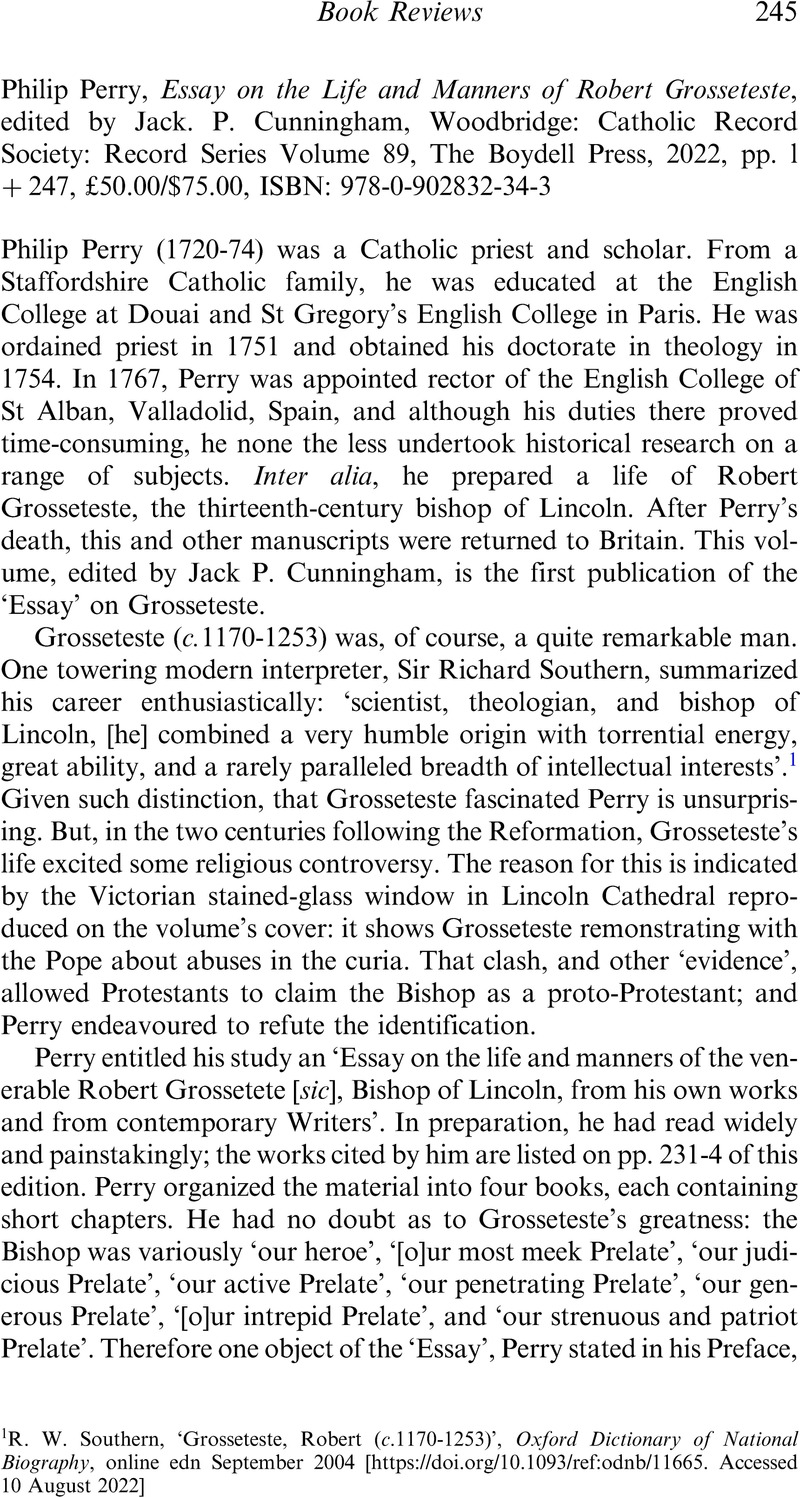No CrossRef data available.
Published online by Cambridge University Press: 07 November 2022

1 R. W. Southern, ‘Grosseteste, Robert (c.1170-1253)’, Oxford Dictionary of National Biography, online edn September 2004 [https://doi.org/10.1093/ref:odnb/11665. Accessed 10 August 2022]
2 Ibid.